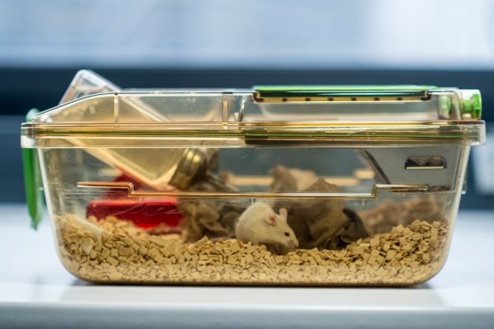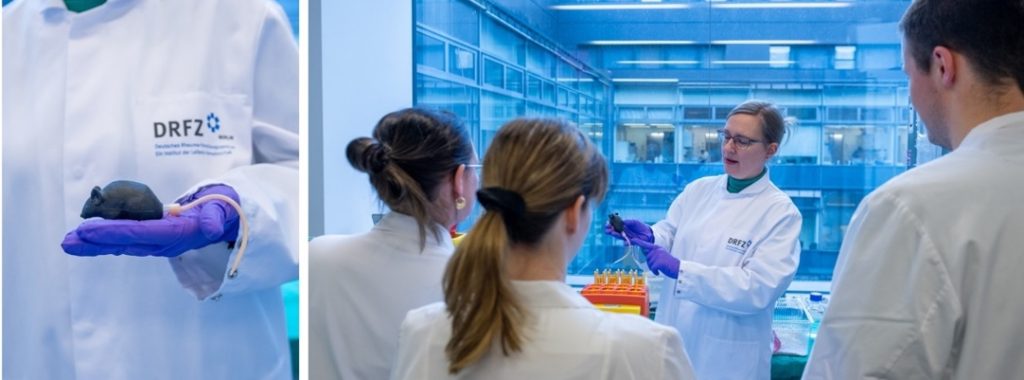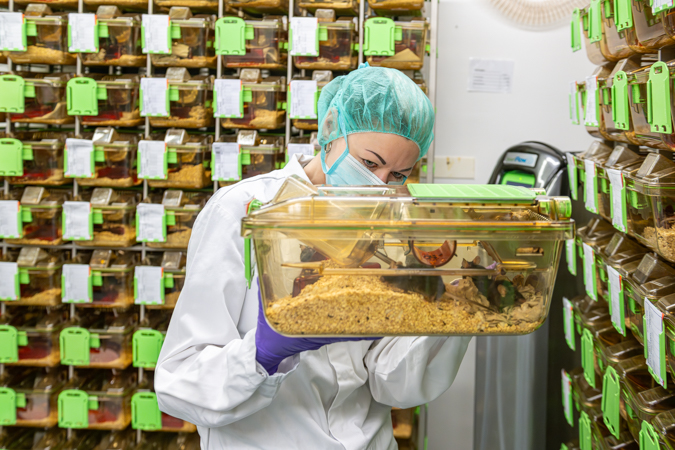
Research focus at the DRFZ
Around 10% of the population suffer from autoimmune diseases such as rheumatoid arthritis, psoriasis, systemic lupus erythematosus, inflammatory bowel disease or multiple sclerosis, to name but a few. Disability and pain take a daily toll. Worse still, patients with chronic inflammatory diseases are also more likely to develop cancer and die at an early age.
Current medication used to treat autoimmune and autoinflammatory disorders must be taken for life and can at best alleviate the symptoms of these chronic diseases, but not cure them. Even the most effective drugs to date are only able to temporarily interrupt the mechanisms of inflammation, but not to eliminate the cause. In addition, many therapies are associated with considerable side effects and often severely suppress the immune system. In order to improve the quality of life of patients with chronic inflammatory disorders, ´scientists at the DRFZ are researching the root causes of these diseases, for which animal experiments remain indispensable.
Scientists from Leibniz Institutes across Germany conduct basic and applied research with the aim of developing ways to solve some of the major challenges facing society. Around 20 Leibniz Institutes, primarily in the field of life sciences, rely on animal experiments for their work. Through their basic research, they work towards providing new treatments, medicines and technologies to combat widespread diseases, but also to improve animal welfare, for example in agriculture.
Animal breeding & husbandry
The mice at the DRFZ are kept in groups, separated by sex. Transparent cages are provided with food pellets, water and a red plastic house, which serves as a shelter for the mice. As mice cannot perceive light in the red range, when they are inside the red house, it appears dark to them. Furthermore, nesting material made of cellulose and cotton wool as well as teething sticks for nibbling are provided in each cage. Due to the design of the cages, animal keepers and scientists can inspect the mice for their well-being without physically disturbing them.

To allow the animals to express their natural exploratory behaviour, the vets at the DRFZ are constantly researching new ways to keep them entertained. These measures are offered to the animals on a rotating basis in addition to the basic equipment so that they never get bored.
Modern technology for efficient breeding management and animal welfare
In the interests of animal welfare and the reproducibility of experiments, it is essential to maintain a defined health status (specified pathogen-free; SPF) in our animal breeding facility. The health status of the mice is checked at regular intervals in accordance with international standards. In order to prevent the entry of pathogens, the facility is equipped with hygiene barriers for staff and all materials are sterilised on entry.
Expertise & continuing education requirement
The DRFZ offers a training programme conducted by veterinarians and employees with many years of experience to train early-career scientists according to FELASA guidelines, applicable legislation and taking into account animal welfare for the handling of animals and their animal experimental activities. This training includes a theoretical and a practical part. After an examination, successful participation is recognized with a certificate. Only after passing such a basic training course is the handling of an animal permitted.
In order to reduce animal numbers and improve the methods to be learnt, the participants receive intensive training in the theoretical part using images and video material. This includes training in recognising and classifying stress, possible courses of action, legal principles and much more. The participants have to pass small exams on each topic. Only successful completion of the course enables participation in the practical part. However, the participants also practise on dummies in the practical part. The researchers are only allowed to work with live animals once they have mastered the methods and learnt how to handle the mice appropriately.

In addition, the veterinarians initiate and organise regular training and continuing education courses on laboratory animal welfare and the 3Rs principle (explained in more detail below?) for all employees who work with animals.
